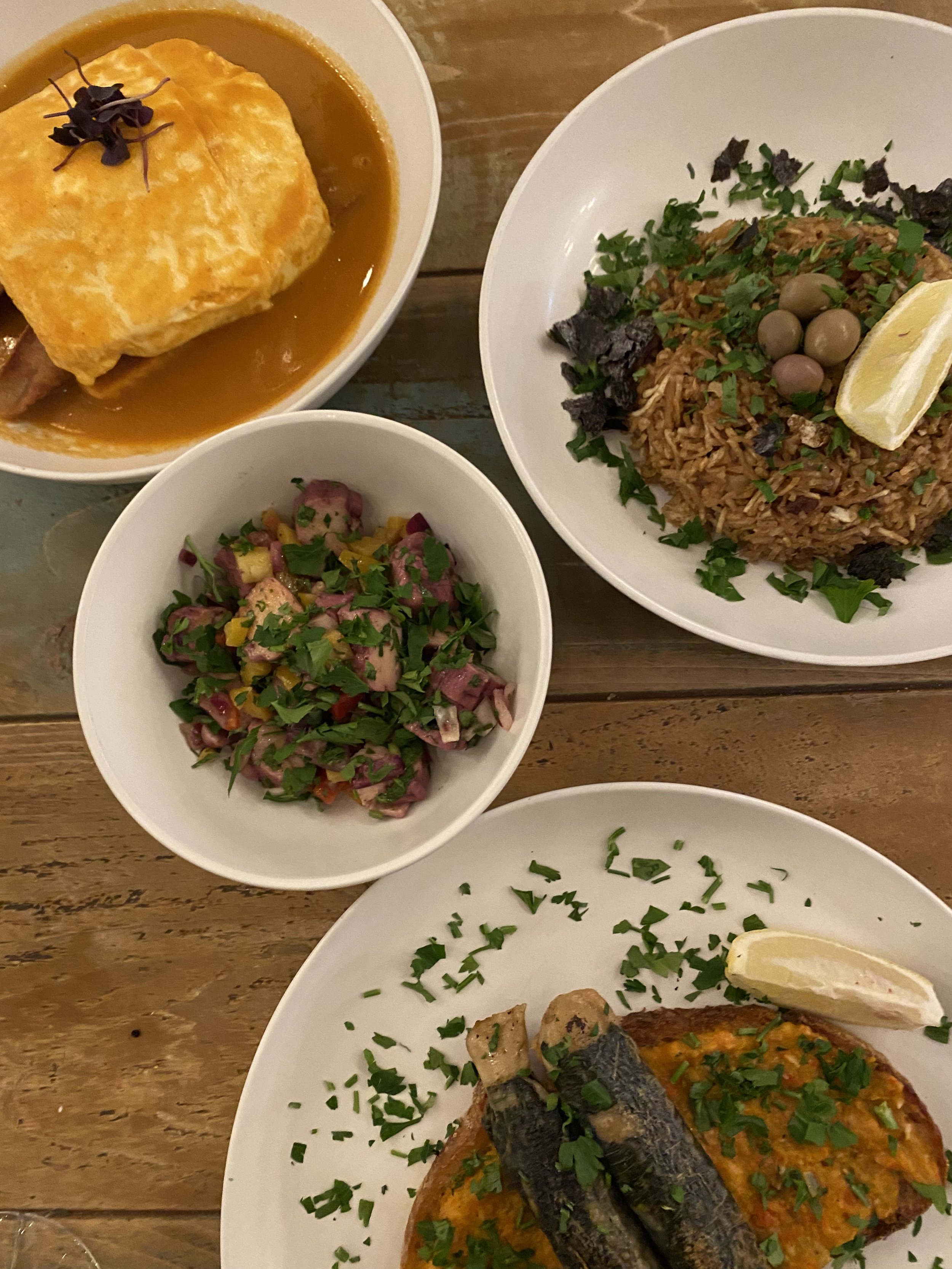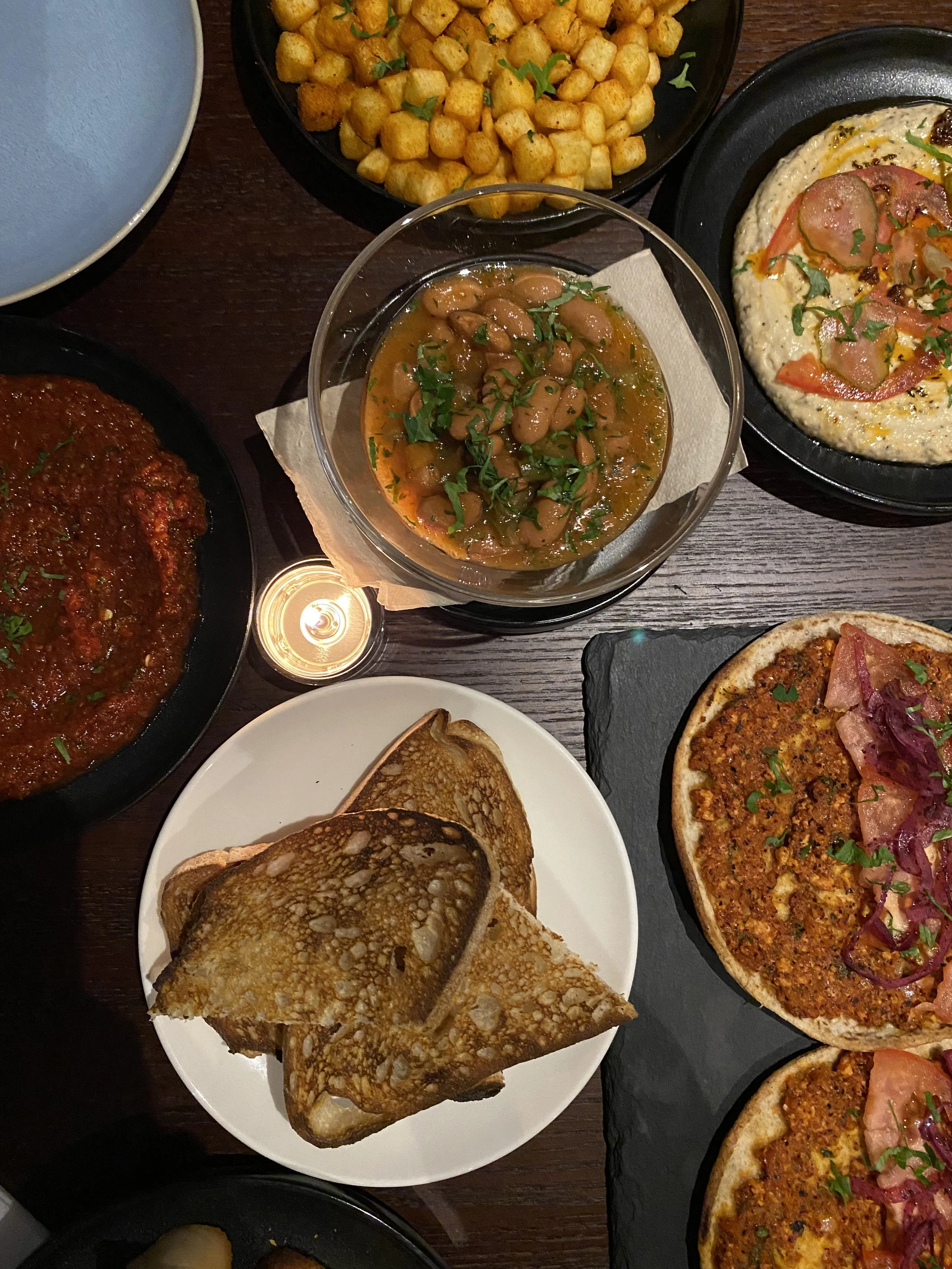Talking to: Maddie Pow - Farming in the Time of Brexit
After a year of struggles for the food industry, 2021 hasn’t started very promising for the sector that has been hit the most during the pandemic. To complicate things now there is a whole post-Brexit uncertainty to face.
The trade deal secured with EU at the 11th hour on the 24th December felt like a careless present you bought for the kids just before returning home for the festive seasons - the kind promptly thrown away just after boxing day.
Sadly, the only thing that has been dumped so far is Britain’s rotten fish due to borders checks and delays before reaching the EU. The same problems arising for livestock exporters, who are also experiencing a drop in income and fear the competition of low-quality imports.
To better understand what the UK’s farmers and producers are going through in Brexit’s wake, I talked with Maddie Pow, one of our writers who is also a third-generation farmer. Her farm is based just outside Bath, and she shares a contagious smile when you let her talk about her cows.
How is the picture of the current pandemic from a farmer’s point of view
Politically and financially farming is very linked because, for most farmers, a lot of their income comes from the government as the price of the products that we produce doesn’t cover production costs. And that is a tough place to be in. For example, we used to have milk cows, but we sold them all because we couldn’t make any money from it.
I think that the government is doing good things, apart from the Agriculture Bill where they are making bad decisions in terms of food protection, food security and protecting our farmers.
But I think they are making good decisions in terms of countryside stewardship. That’s when they give us money for doing environmental work - so protecting hedges, trees and creating habitats for wildlife and that kind of thing. Farmers appreciate that because they want to look after the countryside and their farms. They want them to be really lovely areas.
Another massive issue, within the agricultural industry, is labour. We employ one great guy, but we don’t know what to do when he retires as finding new people in this industry is tough.
Which can only be worse after Brexit.
Oh, definitely! All of those farms have already found that they’re struggling to find labour. I studied agriculture at Uni and every case study we looked at, every farm that we went to we’d ask them what their main difficulties were and all of them said labour. After the Brexit vote, they just can’t economically get the staff anymore.
The Agriculture Bill has been recently reviewed and updated by the parliament. So, why are farmers still not entirely happy with it?
You see, the government has written the Agricultural Bill, which is a pretty good bill to start with, but they haven’t written into that legislation anything that has to do with food import standards of goods which will be imported in the country.
Because when we were dealing with the EU, they produce their food with similar standards, so we had that guarantee, whereas now we don’t. Many farmers are frustrated by that because the government wants all of the rules to produce food with such high standards. Certainly, I appreciate it because I like to do environmental work on the farm, make the environment I want to be in, and encourage the countryside to flourish.
But we can’t then be undercut by imports with lower standards which will be cheaper, so people will buy them, defeating the whole point of us having high standards. We could be a massive world leader in sustainable environmental agriculture. However, the government, by not writing into law that imports have to be at the same standards as us, have really missed a trick.
It might need some improvements, but in terms of protecting the environment and the soil, the Agriculture Bill seems a good starting point.
Yes, we want to protect the environment because we’re custodians of the land. It is not ours because we’re going to hand it down to future generations, and that same land will need to produce harvest year after year before the soil is so degraded that you can’t grow anything on it.
How does food imports affect vegetable producers?
From what I know, as a beef farmer, we tend to find a much more niche way of selling vegetables. So, a lot more local producers will go into veg boxes or be delivered. They won’t necessarily go into supermarkets because if they’re going into their system, then the supermarkets will choose the cheaper veg from abroad.
One positive thing about lockdown was that people started to buy more from local producers who found new markets.
I think that was the case. I know there were many farmers who kind of reevaluated their business models to see how they could fill a gap in the market. So yeah, it was a good opportunity for farmers, and I think they did quite well.
Also, everyone seems to be more focused on organic and locally produced food. An interest that sheds light on the farming world that has been in the shadows for long.
Exactly, and I think it’s fantastic, but I also feel that we need to bring back the interest in agriculture. We need to show what’s actually happening because a lot of media attention on farming has been negative for recent years.
There are movements, very good at using social media, that attack livestock farmers for the way they treat animals. Lots of peoples’ perception of agriculture focuses on veganism. It’s completely influenced by videos of animals mistreated, whereas in reality there are millions of animals in the UK and almost all of them are not treated like that because farmers actually care about their livestock.
There’s a massive misconception about it, probably more connected with intensive farming than small-scale family-run farms.
Exactly! We love our cows, and we will always do what’s best for the animals. Although that doesn’t always align with what someone else, who’s not a farmer, would think is best for the animals. But I guess that we are more used to the idea of death, so if there’s an animal that isn’t going to get better, we will put down the cow.
And that is a vital difference because people seem to have forgotten how life works. You know the famous ‘circle of life.’
Yes. For example, every now and then, we will have a cow with respiratory problems, so we monitor it and look after it giving it medicines. We usually keep it with another cow in another pen, but if someone else comes around the farm they will be like ‘oh there are two animals there on their own, why are they alone? That’s so sad.’ Whereas for us, there is a purpose because it is in the animal’s best interests.
There’s miscommunication there, and I’m always trying to make sure that farming is being projected in its best light because I care a lot about the industry and it makes me sad when it gets misrepresented in the press.
It can changes the way people perceive farmers.
Exactly. And especially in this country where we have such high animal welfare standards that we can be really proud of. But then people say ‘Well that’s not true. Animals are really cruelly treated’. No, they’re not. They are my cows, and it breaks my heart if one is in pain or we have to put it down. It breaks my heart, and the fact that people don’t see it really frustrates me.
With the climate change movement, it seems like younger generations are coming back to nature and wildlife. What do you think about this trend?
I think people are starting to get more interested in them again. However, I see a massive gap between farmers and the general public because farmers are very good at keeping things to themselves and expecting the general public to know what is going on, but why would they? Because you know, no one really sees what’s happening in the countryside.
I think there’s a lot of disconnecting, and farmers can do a lot to encourage people to get back involved with where their food field comes from. Something that it’s really important and we should really work toward it as an industry.
If people don’t know how their food is produced, then why should they support British farms? How can we help them make informed decisions about what food to eat? So much of the food industry changes these days, which influence production, are due to environmental reasons.
Do you think that projects like gardening, farm trips or even cooking classes can help them develop a more comprehensive awareness of nature and food in the long run?
I think it can and, certainly, it’s something that we should encourage in the next generation, mostly because any interaction with nature has been missing in schools for quite a while.
So, for example, one of my lecturers' kids was studying farming. The lecturer was kind of waiting for the teacher to get in touch and ask to come to the farm. Still, the teacher never did so the lecturer went to her saying “I have access to loads of farms, and we used to have kids and young adults coming. Why don’t you make the most of it?” and the teacher answered, “oh well we’ve got YouTube videos.”
This disconnection between farming and the general public was also my dissertation’s subject when I was looking at how education can increase knowledge. The disconnect is quite a big problem and might cause a lot of issues down the line. It does start somewhat from schools because we don’t really get any education about where our food comes from. At best schools might have cooking lessons, and they might cover what’s healthy, or they’ll cover the food wheel, but they don’t really cover where it’s from.
I think the only lessons on farming that I can really remember having were A-level biology, and we were looking at intense farming which isn’t necessarily an accurate representation of what happens in the UK. That is about the only farming lessons I’ve had in school, and I think that’s a shame because, you know, where your food comes from influences everyone.
Like taking care of the environment does. Do you think that this kind of education around food and nature could also help tackle the climate crisis?
I definitely think so. Because if we make the most of young minds, they will be more likely to develop ideas. Regarding climate mitigation and dealing with climate change as it is now, I think farmers are in quite a good position, but we could do more in terms of selling products difficult to sell, like ‘this product was made in a climate-friendly way’.
So, having kids on board and more people educated about climate change and how food is produced is essential because they’ll be able to make links between the two, and then make informed decisions.
Starting with meat consumption, consider the negative impact that meat’s production has on our planet, only because we eat more meat than we really need.
We really should eat less, I agree. I mean, as a beef farmer I’m shooting myself by saying that, but I think we don’t need to eat meat every day.
Interested in the agricultural world? Check out The Soil Association to learn more about this ancient yet essential industry.
Interviewee: Maddie Pow
Maddie lives and works on her family farm on the outskirts of Bath. In her spare time she does a bit more farming, and a bit more. But she equally enjoys spending her evenings sitting by the telly with a glass of wine doing some knitting. Or perhaps baking some sourdough. If you want to know more about British farming you can follow her Instagram @livinginwellies












